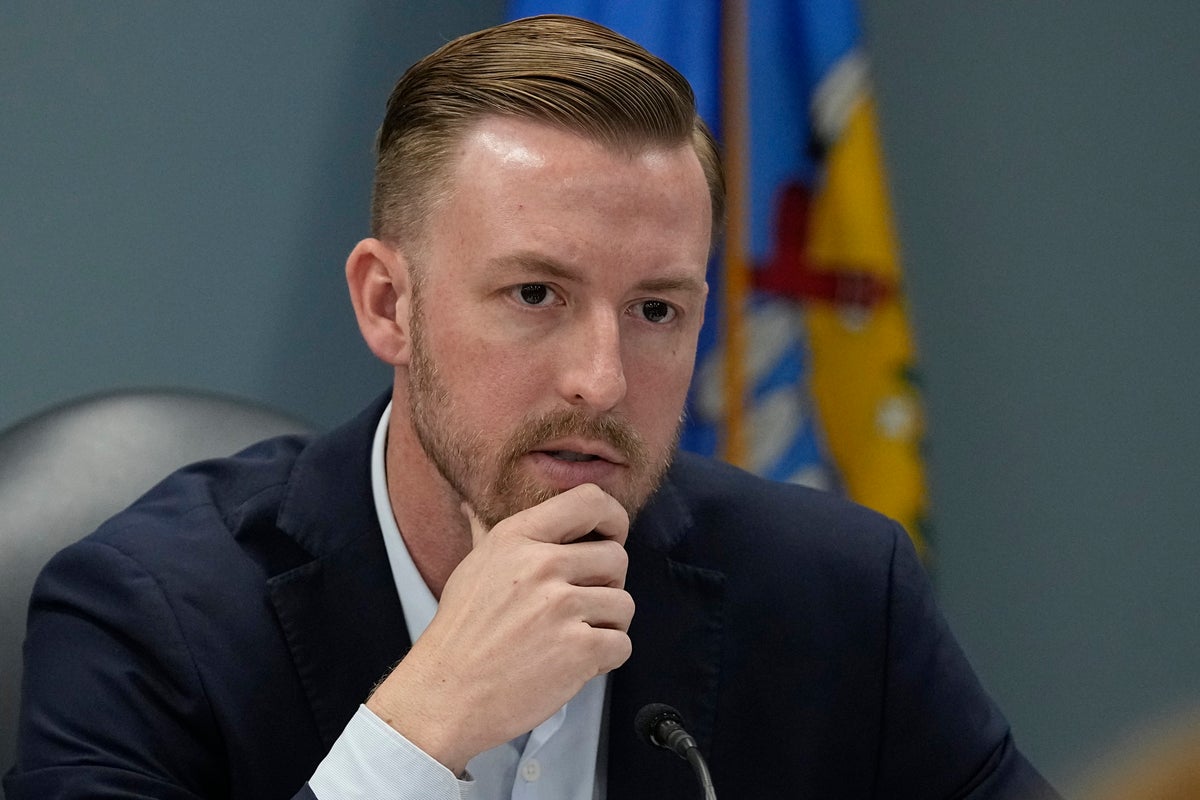
In his first year as head of Oklahoma's public schools, State Superintendent Ryan Walters has taken on what he describes as “radical leftists" indoctrinating students. He has sought to ban certain books from school libraries and gone after efforts to promote diversity, equity and inclusion in the classroom.
Now, the Republican who has fully embraced so-called culture war issues has a new target in his sights: Tulsa Public Schools, which is Oklahoma's largest school district and has a student body of more than 33,000 students, nearly 80% of whom aren't white. It's a notable shift for Walters to move beyond conservative rhetoric by taking substantive action against a district viewed as more liberal, and it mirrors takeover actions by leaders in other Republican-led states such as Texas that Democrats see as driven by politics.
While every other Oklahoma school district had its accreditation routinely approved by the state school board last month, Walters singled out Tulsa's for a separate review, castigating the district as failing its students because of poor performance on standardized tests and a recent embezzlement scandal, and saying publicly that “all possible actions” were being considered, including the revocation of the district's accreditation. The board, composed entirely of appointees of Republican Gov. Kevin Stitt, will meet Thursday in Oklahoma City to vote on the matter.
In an effort to prevent the state from taking over the district, Superintendent Deborah Gist, who has had several highly publicized clashes with Walters and Stitt, announced her resignation Tuesday night.
“It is no secret that our state superintendent has had an unrelenting focus on our district and specifically on me, and I am confident that my departure will help to keep our democratically-elected leadership and our team in charge of our schools — this week and in the future,” Gist said in a statement.
Under Oklahoma law, students in a school or district that loses accreditation should be reassigned to accredited schools. It's unlikely the board would revoke the accreditation of the entire district, as the surrounding suburban districts would not be equipped for such a massive influx of students.
Walters' attack on the district in a city with a long history of racial tension, including one of worst acts of violence against Black people in U.S. history, doesn't sit well with state Rep. Monroe Nichols, a Tulsa Democrat who chairs the Legislative Black Caucus.
Nichols, who is running for mayor of Tulsa, stopped short of saying Walters' criticism of the district is racially motivated, but he noted that the board first downgraded Tulsa's accreditation in July, while Walters was serving as Stitt's education secretary, after the district allegedly violated a new state law that prohibits the teaching of certain concepts regarding race and racism.
“I don’t know his heart or the hearts of the board members, but I know they have over and over focused on the issue of race, and they just now happen to be threatening to ‘unaccredit’ the school district that educates the most Black kids in the state,” Nichols said. “There are several other districts whose outcomes are worse than TPS’, and none of them are facing the same consequences.”
For his part, Walters said he wants to see Tulsa dramatically improve its test scores, particularly in reading, and get more schools off the state's “F” list of report cards that aim to measure a school's performance and improvement.
“From 2018, TPS had 21% of their students reading proficient,” Walters said. "Now they have 12%. This is tragic for Tulsa students. The state average of reading proficiency is 27.9%."
“What we've seen, especially over the last five years, is a terrible trajectory for this district.”
Students in Oklahoma have historically performed below the national average in math and reading, and students nationwide have seen standardized test scores plummet to their lowest levels in decades since the pandemic started.
On Tuesday, Walters praised Gist's decision to resign, calling it a “positive step in the right direction.”
Still, Walters' bombastic rhetoric and his embrace of culture war issues like banning books, targeting transgender students and pushing for more religion in public schools has drawn criticism even from his Republican colleagues.
The regular State Board of Education meetings that Walters chairs, which had typically been routine, bureaucratic affairs, have now become sounding boards for political grievances from the public, with people waiting for hours to get a seat in the small conference room. A meeting earlier this summer became so contentious that a scuffle broke out, leading to criminal charges against two men.
“There's a lot of serious work that needs to be done, and I'm not sure how much the rhetoric and the name-calling really accomplishes,” said state Rep. Jeff Boatman, a Republican who represents portions of Tulsa and its surrounding suburbs.
Lance Brightmire, who graduated in May from Tulsa's Booker T. Washington High School, said many Tulsa students feel they're in the middle of a “well-financed and coordinated attack on America's public schools and public institutions.”
“TPS students and students across this country have become caught up in a political firefight where they have nothing to gain but so much to lose,” Brightmire said.







